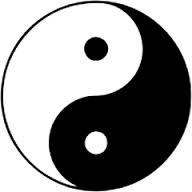“When prosperity comes, do not use all of it”. – Confucius
 Taoism is often described as an advocacy of simplicity and naturalness with the course of natural events. Many modern illustrations provide contexts in business, athletics, professional development and learning. In Larry Phillips’ The Tao of Poker, the variety of disciplines Phillips illustrates through the player’s experiences and considerations within 285 rules of play are profoundly applicable to the inevitable encounters life provides us all each day.
Taoism is often described as an advocacy of simplicity and naturalness with the course of natural events. Many modern illustrations provide contexts in business, athletics, professional development and learning. In Larry Phillips’ The Tao of Poker, the variety of disciplines Phillips illustrates through the player’s experiences and considerations within 285 rules of play are profoundly applicable to the inevitable encounters life provides us all each day.
One such warning reminds us of the need—and our responsibility—to avoid the temptation to react too confidently or generously to a significant ‘win’ or achievement. Our work and our desire for reward are rightly encouraged by the levels of success we earn when we dedicate our talents toward specific goals, but just as the poker player whose last hand has brought a major winning and the chips have been abundantly stacked in front of him or her, it is highly important that each such success be understood as a validation of steady, consistent, and disciplined participation. In turn, these same gains cannot serve as the justification for unbridled ventures and pursuits that may very well have opportunity for great payoff, but also hold the equally enormous risk of great and unnecessary loss.
Individually, we must recognize also that our personal successes are highly important in further establishing our known skills, talents and abilities—but never at the risk of allowing the compromising effects of arrogance to imbrue our vision for future opportunities to perform, achieve and grow. Experience indeed only becomes wisdom when we actively use it in our choice-making.
Leaders in disciplined and learning organizations are mindful of these occurrences and work to provide a balanced and genuine recognition of high performance and a paced approach to their goals. Emphasizing the preparation and strategy that made the achievement possible from that particular opportunity become natural parts of the shared experience.